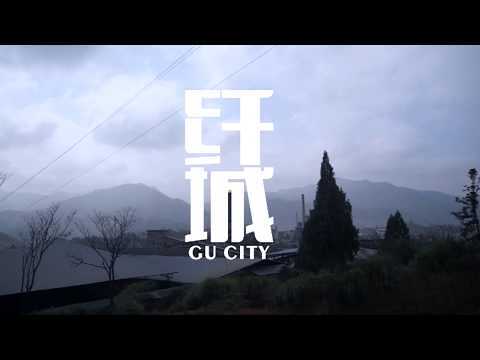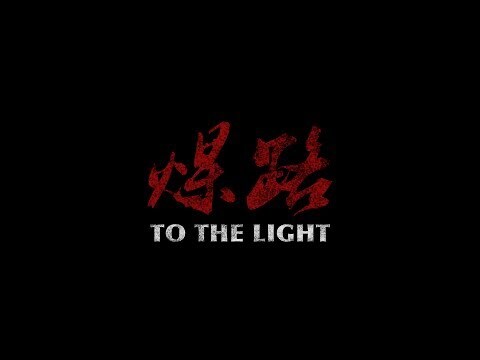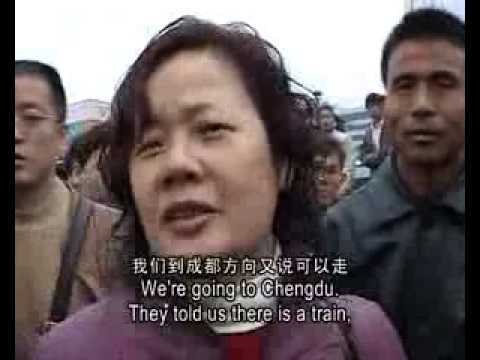Explore the collection
Showing 14 items in the collection
14 items
Film and Video
Faraway Mountain
This movie captures the lives of miners in small coal mines in the Qilian Mountain area of Qinghai Province. At 3600 meters above sea level, the air here is thin. Miners in the small coal kilns labor hard in a working environment without any protection, and usually get silicosis after 5-10 years of work, thus losing their ability to work. If they die in an accident, their families receive only meager compensation. This is a true record of the survival of China's grassroots laborers in the early 1990s.
Film and Video
Fiber City
Fiber City—the collective name Fujian Textile and Chemical Fiber Factory—was founded in 1971. China's first production in the 1970s, one of the nine Vinylon factories located in Yongan City, Fujian Province, deep in the mountains, 3 kilometers outside the outskirts of the industrial town. Once glorious, it has been gradually lowering its curtains. The old factory buildings are mottled, its young workers are now gray-haired, and many have left. The documentary shows the fate of this big factory during the planned economy.
Book
Fracture—Chinese society since the 1990s
This monograph by Sun Liping, a professor at Tsinghua University, was published by China Literature Publishing House in 2003. The author systematically analyzes a series of changes in Chinese social life since the 1990s. The book discusses the meaning and characteristics of fractured society; the formation and background of fractured society; widening income gaps and the formation of vulnerable groups; the new urban-rural dual structure; trust crisis and social order; social conflicts and institutional innovation, etc.
Book
Gan Cui: The Soul of Peking University-From Lin Zhao to the 1989 Democracy Movement
This book was originally published in the series *Micro Traces of the Past* - Documentary Volume - No. 6, edited by Huang Heqing, founded in 2007. Gan Cui, a student at Renmin University of China, was classified as a rightist in 1957. He became lovers with Lin Zhao, a rightist student who came from Peking University to work in the data room. Gan Cui was later sent to Xinjiang. When he returned, he learned that Lin Zhao had been killed. This book (in 140,000 words) is a manuscript of Gan Cui's memories of Lin Zhao in the context of the 1989 pro-democracy movement.
Book
History of the Chinese Thought Movement
This book is a masterpiece by Chinese scholar Li Honglin. The author was a representative of the ideological liberation movement during reform and opening up and was arrested after the Tiananmen Square incident in 1989. This book summarizes the various ideological purges launched by the CCP since its establishment in 1949.
Book
In Search of My Homeland
“In Search of My Homeland” is a collection of essays in three volumes written by Gao Ertai during his exile abroad. In this book, Gao looks back on his life. From his hometown of Gaochun, a small town in Jiangsu Province, to Suzhou, then to Lanzhou, Jiuquan, Dunhuang, Beijing, Chengdu, and the United States, Gao has undergone tremendous suffering, lost his home and family, and finally had to go into exile in a foreign country. Even though the work is widely regarded as having great literary merit, Gao uses real names and places, which makes the work a valuable historical document, especially for describing the Great Famine, and the brutal suppression of intellectual life during the Cultural Revolution at the Dunhuang research academy, which is one of China's most prestigious cultural institutions.
In an [interview](https://web.archive.org/web/20240130211408/https://www.aisixiang.com/data/80804.html), Gao explained why he wrote the book: "Searching for my homeland is nothing but searching for meaning.... Life is short and small, and its meaning can only be rooted in the external world and in the long history. My sense of drift and meaninglessness, that is, a feeling that the world has no order, history has no logic, and the individual has no home, seems to be a kind of destiny. My writing is nothing but a resistance to this destiny."
In 2004, a censored version of the first two volumes of this book was published by Huacheng Publishing House in Guangzhou; in 2011, an updated version was published by Beijing October Arts and Literature Publishing House, but still censored. The version uploaded to our archive is the traditional Chinese version of the complete three volumes published by Taiwan INK Publishing House in 2009.
Book
Lin Zhao: No Longer Forgotten
This book contains a number of articles in memory of Lin Zhao. It concerns the death of Lin Zhao as well as Lin Zhao's love, pursuits, and disillusionment. This book was published by Changjiang Literature and Art Publishing House in 2000.
Film and Video
Memory of Lin Zhao
Independent director Tiger Temple began shooting this film in 2010 and completed it in 2012, with subsequent revisions. The film features interviews with Lin Zhao's former lover Gan Cui as well as interviews with several independent scholars such as Qian Liqun and Cui Weiping. It is a powerful addition to Lin Zhao's memory. This film was selected as one of the top 20 finalists in the 2012 Sunshine Chinese Documentary Awards.
Book
Science, Democracy, Rationality: Xu Liangying's Anthology
Chinese intellectual Xu Liangying is a scholar of the history of scientific thought and an active warrior in defense of human rights. He weathered China's most extreme political storms and began to speak out again after China opened up slightly in 1977. This book collects his political speeches between 1977-1999. Originally published by Spiegel Publishing in Hong Kong in 2001, the book was later made into a PDF version by Xu Liangying's family in the hope that it would be circulated online to a wider audience.
Film and Video
The Coal Road
This documentary tells the story of the lives of three families of coal miners in the mountains of eastern Sichuan. Winner of the 35th Margaret Mead Movie Director's Award in 2011. Directed by Liu Yuanchen.
Book
The Goddess of Freedom of the Chinese Nation -- An Anthology of Essays in Honor of Lin Zhao 40 Years After Her Death
Lin Zhao, formerly known as Peng Lingzhao, a native of Suzhou, was admitted to the journalism department of Peking University in 1954, but was classified as a Rightist in 1957. She was arrested and imprisoned in October 1960 because of her involvement with the underground magazine <i>Spark</i>. In 1965, Lin Zhao was sentenced to 20 years' imprisonment for "counter-revolutionary crimes." On April 29, 1968, she was sentenced to death and executed on the same day at the age of 36. This book is a collection of more than sixty articles written in memory of Lin Zhao.
Film and Video
The Gulag Book
This movie records how Zhang Xianzhi went from being a soldier to a prisoner and then to an independent writer. His experience and thought process is compared with that of the Russian writer Solzhenitsyn. The title of the film is taken from the title of Zhang Xianzhi's book <i>Anecdotes from the Gulag</i>, which takes the viewer on a journey to China's Gulag Archipelago, a labor camp in Sichuan. The extreme conditions and little-known tragic history of the camp are presented. The movie is 42 minutes long and was filmed in 2012.
Film and Video
The Train to My Hometown
As the Lunar New Year approached in 2008, the main north-to-south railway line, the Beijing-Guangzhou line, was halted and the trains stopped running due to tickets being overbooked. With the trains still not running, thousands of migrant workers from Guangdong gathered at the Guangzhou Railway Station, waiting for trains bound for their hometowns. The Guangdong Province government immediately launched an emergency transportation plan. For the first time, the trading center hall where the Canton Fair was held was transformed into a waiting room for migrant workers. Many volunteers provided services to relieve the fears of worried migrant workers.
The crowd began to panic as rumors swirled, and people were trampled underfoot. One was a young female worker, Li Hongxia. Another migrant, Li Manjun, who was eager to travel home to get married, was electrocuted and died after attempting to jump onto the train. This documentary records the chaos at the Guangzhou Railway Station during the Lunar New Year’s Eve period, from January 27 to February 6, 2008. The filmmaker also visited Shenzhen, Shaoguan, Ruyuan, as well as conducted interviews in victims’ hometowns in Jianli, Hubei, and the rural regions of Yueyang, Hunan.
This film is in Chinese with both English and Chinese subtitles.
Book
Who is the New China
Author Xin Hao Nian tries to analyze the modern history of China since the Xinhai Revolution. He pointsout that the People's Republic of China (PRC) is a restoration of the authoritarian system, and the Republic of China (ROC) represents China's road to a republic. The first volume of the book defends and clarifies the history of the Kuomintang (KMT), arguing that the KMT is not a "reactionary faction" as claimed by the CCP. The second volume criticizes the revolution and history of the CCP. The book was first printed in 1999 by Blue Sky Publishing House (USA) and reprinted in June 2012 by Hong Kong's Schaefer International Publishing. It is banned on the mainland.













